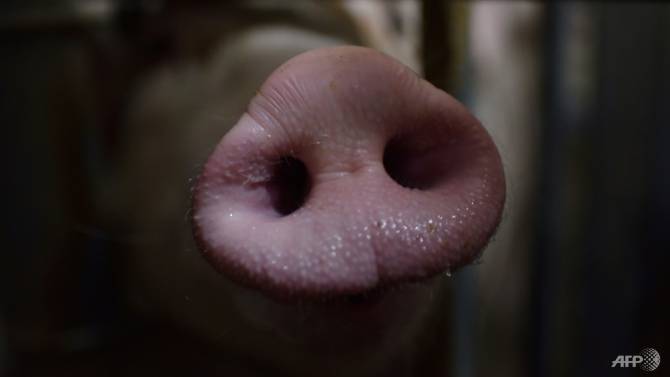May 20, 2025 | 17:08 GMT +7
May 20, 2025 | 17:08 GMT +7
Hotline: 0913.378.918
May 20, 2025 | 17:08 GMT +7
Hotline: 0913.378.918

China's consumer inflation has been driven up in recent years by pork prices after an African swine fever outbreak ravaged stocks. Photo: AFP
The world's second largest economy has largely bounced back from the coronavirus hit, and factory gate inflation began to ease last month after surging at the highest rate in more than a decade earlier in the year as commodity prices spiked.
Factories so far appear to be absorbing the costs rather than passing them on to consumers, and analysts expect Beijing to protect shoppers from rising costs.
China's consumer price index (CPI), a key gauge of retail inflation, rose 1.1 per cent on-year in June - lower than analysts expected, and down from the month before.
The low CPI inflation was "to a large extent driven by slumping pork prices", Nomura chief China economist Lu Ting noted.
China's CPI has been driven up in recent years by pork prices after an African swine fever outbreak ravaged stocks.
Pork prices have now dropped 36.5 per cent from last year's spike, according to the National Bureau of Statistics (NBS), helped by a recovery in live pig production and seasonally weak consumer demand.
The government has a target to keep consumer inflation below 3 per cent this year.
The producer price index (PPI), which measures the cost of goods at the factory gate, rose 8.8 per cent on-year - edging down from the 9 per cent surge in May.
"In June, preliminary effects of policies to stabilise the supply and cost of commodities can be seen ... and the rise in prices of industrial products has slowed," said Dong Lijuan, senior statistician at the NBS.
Lu of Nomura said he expected Beijing to ease some of its carbon emission and production safety rules to boost the production of some raw materials, and remain "strategically focused on boosting the manufacturing sector".
(AFP)

(VAN) Attempts to bring down the price of the Japanese staple have had little effect amid a cost-of-living crisis.

(VAN) Fourth most important food crop in peril as Latin America and Caribbean suffer from slow-onset climate disaster.

(VAN) Shifting market dynamics and the noise around new legislation has propelled Trouw Nutrition’s research around early life nutrition in poultry. Today, it continues to be a key area of research.

(VAN) India is concerned about its food security and the livelihoods of its farmers if more US food imports are allowed.

(VAN) FAO's Director-General emphasises the need to work together to transform agrifood systems.

(VAN) Europe is facing its worst outbreak of foot-and-mouth since the start of the century.

(VAN) The central authorities, in early April, released a 10-year plan for rural vitalization.